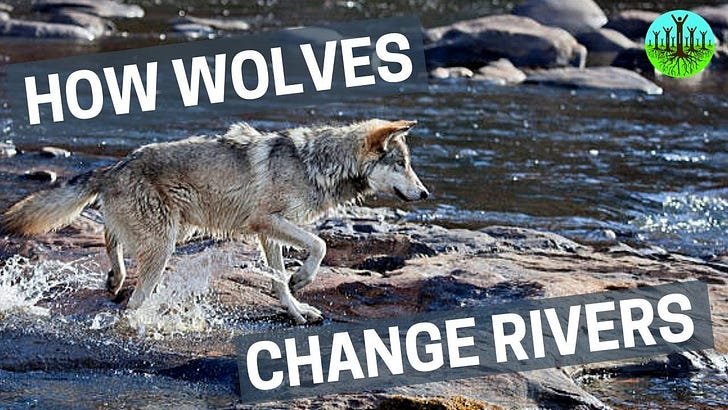The Cost of Denying Unintended Consequences
"Butterfly Effect" defined:
A mediocre movie starring Ashton Kutcher.
A mathematical theory where a butterfly flapping its wings can change weather patterns across our planet.
A metaphor that anything and everything we do can have significant, downstream consequences.
I'm obsessed with #2 and #3, but not so much about #1 (glad I watched it, will never do it again).
This obsession started when my high school math teacher, Mr. Valachovic, lent me a book on Chaos Theory. There, I learned of the story of Lorenz, the MIT geologist who would experience this Eureka moment—that very small changes in input could lead to massive changes (over time and in unexpected ways) in the outputs.
We have evidence and examples of these all over the world.
One of my favorites is The Four Pests campaign in China. The goal seemed so noble! Of course, we need to get rid of things like rats. But in doing so, they disrupted the ecological systems so badly that massive famines resulted.
There are more subtle examples, such as the reintroduction of wolves changing the rivers of Yellow Stone Nation. It's a wild chain of events. Check out this Youtube video.
I could geek out on this further, but let me bring this closer to home.
Look at the situation happening right now in the world with the US Tariffs. Now, whether you believe these tariffs are good or bad is besides the point. Like the wolves improving the rivers by killing deer or China causing famines by killing pests, there will be 2nd and 3rd order consequences by introducing such massive change so quickly.
Take this recent unintended consequence.
While the tariff intended to bring more US manufacturing onshore, there were situations where US companies (financially injured by the tariffs and how they were rolled out) were forced to sell themselves to their Chinese competitors.
To restate it just so we're crystal clear:
The tariffs were intended to bring more jobs to the US.
A result was Chinese companies buying US competitors.
Now, this may not be the default or widespread outcome. However, it's surprising to some because they were only looking 1-2 chess moves ahead, and didn't see this problem occurring another 2-3 moves after that.
The list of recent examples goes on.
Vaccine mandates led to an increase in vaccine hesitancy.
Extreme wokeism led to a red wave washout.
DOGE mishandling of data undermined their integrity.
You'll note that I've selected examples that impact both political parties because both sides suffer from this same blindness or arrogance.
Both believe they can achieve a consequence-free outcome.
To their credit, sometimes they can (but not always).
Paradoxically, the other party can easily see and predict these consequences. When Kamala stepped in for Biden with no primary, conservatives knew that independents would be pissed about the lack of due process (and a candidate that was lackluster at best). Democrats were in denial then much like Republicans are in denial about tariffs now.
I'm using political examples, but this is not about politics.
It's about your health.
Sure, you could lose weight going all in on Ozempic, but if you're not addressing a poor diet and lack of exercise, you may mask a food allergy that kills you early.
It's about your family.
Sure, you may think that helping your alcoholic relative out by giving him a place to stay may help get them on their feet, or it may enable them to keep drinking because they aren't facing the consequences.
Not everything will have these hidden costs, but many things will. The key is to be aware of them so that if/when they do pop up, you can trace them back to your earlier decisions and choices. Only then can you make better, more informed decisions.
But if you don't learn from your mistakes, you may watch another Ashton Kutcher movie. And life's too short for that.



